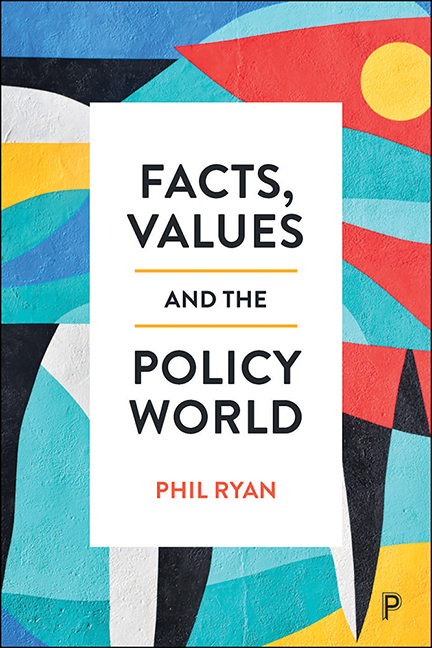2 - The quest for exogenous values
Published online by Cambridge University Press: 15 September 2022
Summary
The binary view presents policy analysis with a sharp dilemma. We may approach this through a piece of research textbook advice that is typical of the binary view: ‘Ultimately, deciding the best or most desirable application of knowledge is a subjective, individual activity’ (Manheim and Rich, 2006, 2). While many social scientists may nod their heads at this piece of folk wisdom, policy analysis faces a difficulty, because it is intrinsically concerned with ‘the best or most desirable application of knowledge’. Policy analysis is practical reflection, reflection on the question ‘What is to be done?’ Hence it is involved in its essence with matters of value, since ‘What is to be done?’ always involves the question, ‘What is worth doing?’ – along with other value-aden questions.
This value-centric quality of policy analysis is highlighted by Wildavsky's classic definition: policy analysis is about ‘finding a problem about which something can and ought to be done’ (1979, 3). As Anderson points out,
Problems are not just ‘out there’ waiting to be resolved. The first act of evaluation is to make a distinction between ‘problems’ and ‘the way things are.’ Poverty is not a problem for a society that believes that ‘the poor are always with us’ – or that they get precisely what they deserve. (1979, 712)
So how does analysis governed by the binary view manage, if it seeks to be ‘scientific’ and ‘objective’, and understands this to involve keeping values at bay? Escape from the dilemma is provided by having guiding values come from somewhere else. Thus, a key effect of the binary view is to spark a quest for sources of value, exogenous sources that allow the analyst to bypass the task of making explicit normative arguments.
This process need not be as conscious as the foregoing might suggest. The exogenous values do not have to come labeled as such: they can arrive embedded in specific policy choices. Thus, ‘If the Department of Defense desires a given amount of transport capability, alternative systems may be investigated to determine which of them is the lowest cost method of providing that capability’ (Stokey and Zeckhauser, 1978, 153).
- Type
- Chapter
- Information
- Facts, Values and the Policy World , pp. 27 - 39Publisher: Bristol University PressPrint publication year: 2022



